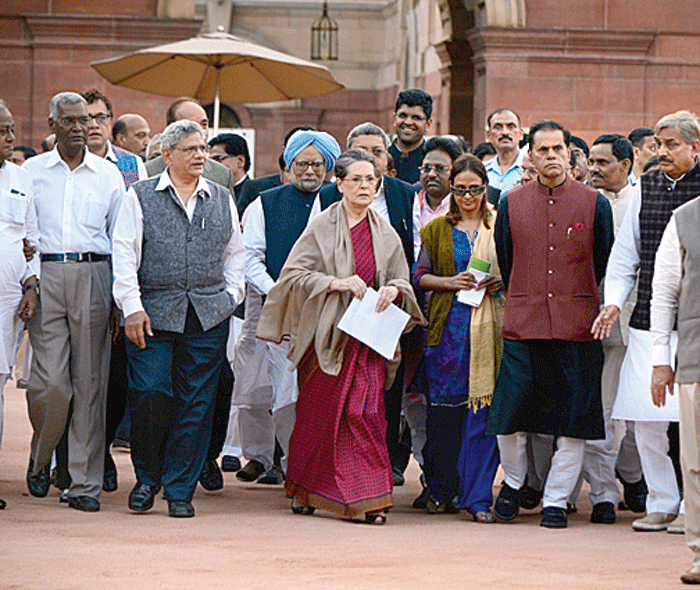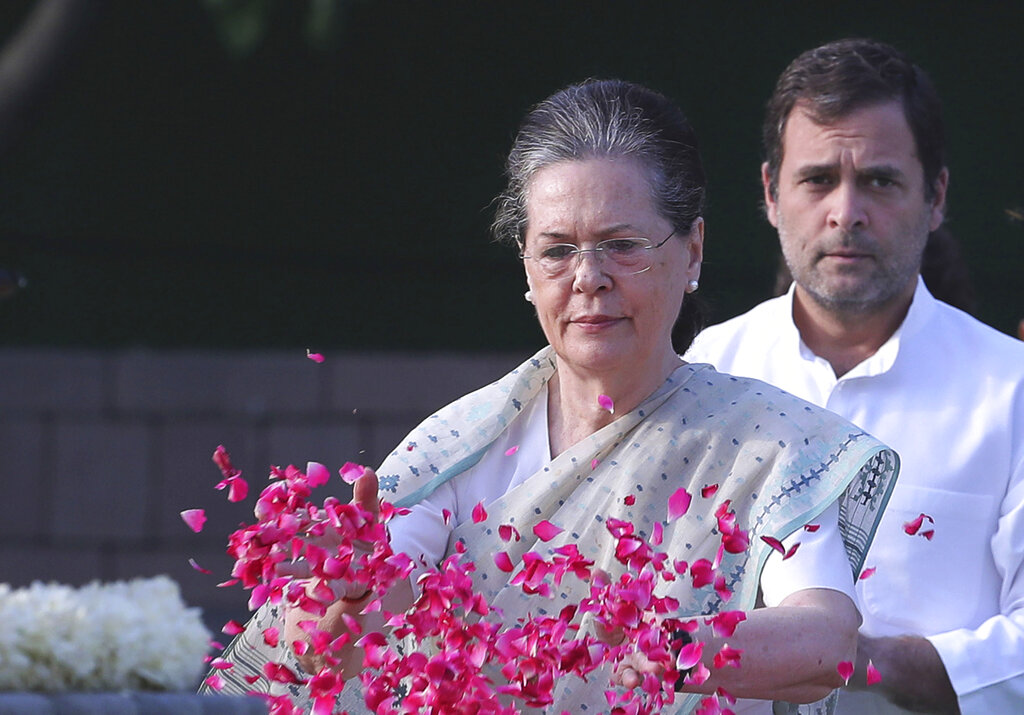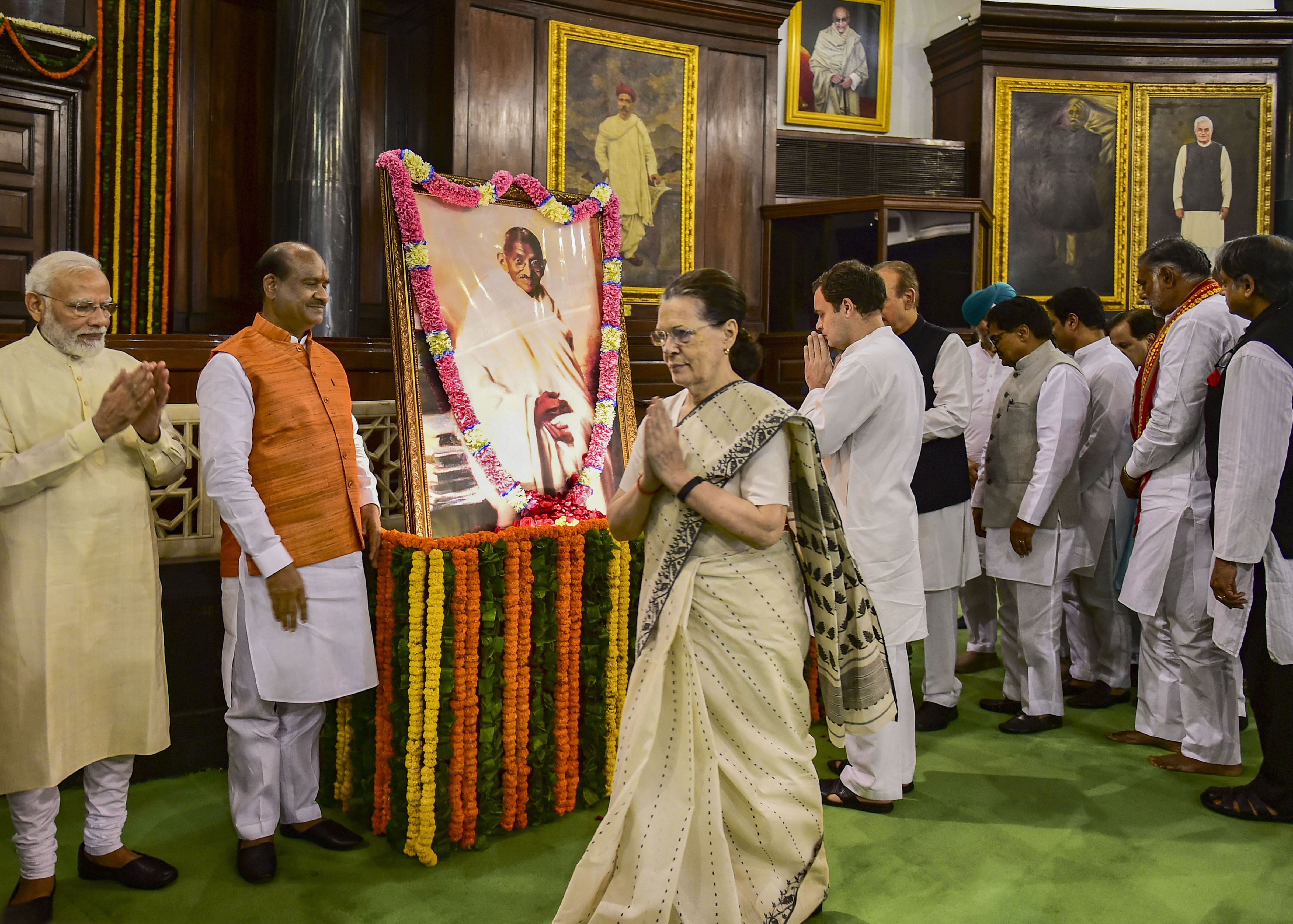Every election in a democracy leads to heightened passions and exaggerated displays of partisanship. Regardless of the eventual outcome, a healthy contest necessarily involves a belief in all sides of the contest that they are in with a chance. Without this self-belief, competitive politics would be rendered meaningless.
So it was in the Indian general election of 2019 that led to Narendra Modi winning a convincing re-election and the Bharatiya Janata Party securing an absolute majority in the Lok Sabha for the second time in succession. But the elections concluded with the declaration of results on May 23 and the subsequent four months should have been time enough for the election dust to settle and normal life to resume.
In many ways it has. There has been a remarkably productive session of Parliament that resulted in some landmark legislations, particularly on personal laws and on Jammu and Kashmir. The initial signs of a possible economic slowdown have led to the government doing what is normally left to the run-up to another general election — cutting corporate taxes. And, in the realms of foreign policy, India has demonstrated its global clout by being able to secure an exceptionally large measure of understanding — if not outright support — for its difficult project of restoring peace and stamping out terrorism in the Kashmir Valley.
Each of these moves and initiatives warrants critical dissection, not least because they set out the broad parameters of the second Modi administration. An Opposition that was badly mauled in the general election would, quite naturally, assess the government’s measures to formulate future strategies, even if these are marked by some tentativeness. That, after all, is how democracy works.
Curiously, this is not what has happened since end-May this year. That there would be inner-party tensions, and some bloodletting, in parties that had performed below expectations were only to be expected. The Congress was stunned by the scale of its electoral defeat and has spent the past four months coping with internal distress. First, it spent many weeks trying to discover whether or not Rahul Gandhi’s resignation as party president was serious or just a ploy to secure total control of the party and discard inherited baggage. Once it became clear that the designated heir was indeed serious, the party was overcome with an existential problem. Should the Congress, it was asked, be looking to a post-dynasty future or should it try and discover another Gandhi family face? This was potentially a serious issue that needed to be resolved, once and for all. However, the issue — while it may indeed have been debated privately and behind closed doors — was largely left unaddressed. Sonia Gandhi was dragged out of semi-retirement and entrusted with the charge of picking up the pieces. Yet, it soon became apparent that even this was an interim arrangement and would probably last until either Rahul recovered his bearings or his sister, Priyanka Vadra, was entrusted with the charge of heading the family firm. The option of finding a person of competence from outside the family was never seriously explored.
The net effect of the Congress’s existential churning was the failure to address larger political issues. The party was caught unawares by the government’s legislative blitzkrieg and responded incoherently. First, it spoke in multiple voices on the government’s Kashmir initiative, with important voices coming out in support and others being indistinguishable from the regional parties in the Kashmir Valley. The problem was compounded by the fact that the past four months have also witnessed a steady trickle of desertions from the party that has led to the loss of the state government in Karnataka and profound demoralization in the ranks in Maharashtra, a state where assembly elections are scheduled later this month. In Jharkhand, a state which elects a new assembly in December, the president of the state Congress unit left the party to join the Aam Aadmi Party — a measure of the dejection in the ranks. Defections have also hit Sharad Pawar’s Nationalist Congress Party, the Congress’s foremost ally in Maharashtra.
The Congress was also affected by the arrests of the former Union minister, P. Chidambaram, and its Karnataka heavyweight, D.K. Shivakumar, on corruption charges. Although it is unfair to pronounce the men guilty, their eventual failure to secure the protection of the judiciary has sent out a clear message to others fearing action from either the Central Bureau of Investigation or the Enforcement Directorate. The Bombay High Court’s directive to register FIRs against the NCP stalwarts, Sharad Pawar and Ajit Pawar, too, has had the same political repercussions. In West Bengal, for example, there is apprehension that the anti-corruption crackdown could, sooner or later, lead to action against stalwarts of the Trinamul Congress. A similar wariness is visible in Andhra Pradesh where four Rajya Sabha MPs elected on Telugu Desam Party tickets have crossed over to the BJP.
The extent to which these defections will help the BJP is not known. There is a section of the ruling party that feels that the inclusion of ‘tainted’ politicians, while having some very short-term gains, will lead to a moral equivalence between the BJP and the rest, obliterating the ‘party with a difference’ tag. However, others feel that to become a truly national party the BJP must continuously add social groups to its existing kitty. It also believes that as long as the ethical priorities of the top leadership are not distorted, the priority should be on simultaneously expanding the party and weakening the Opposition. Certainly, for the moment, the Opposition stands much weaker today than it was on the day of the counting of votes in May 2019.
This is not to suggest that the Opposition is uniformly in disarray. In West Bengal, Mamata Banerjee remains a tough nut to crack and has succeeded in putting the BJP on the back foot over the exclusion of Bengali Hindus from the National Register of Citizens in Assam. In Tamil Nadu, a buoyant Dravida Munnetra Kazhagam has lost no opportunity in trying to embarrass the Centre on cultural issues. These two parties are, for the moment, lone warriors. Other important regional parties, such as the YSR Congress in Andhra Pradesh, the Biju Janata Dal in Odisha, and the Telangana Rashtra Samithi have chosen the path of non-confrontation with the BJP at this juncture.
The inability of the Opposition to get its political act together has left it with very limited options. The two courses being followed are less by design and more by circumstance. The first is an over-reliance on the judiciary to assume the role of the political Opposition, whether on Kashmir or the proposed citizenship bill that will prevent any Hindu refugee from Bangladesh from being denied Indian citizenship. The desire to make judges the final arbiters in political matters is a process the Opposition is encouraging to cover up for its own confusion and disarray.
Added to this is the tendency to make the media and the intelligentsia the home guard of the Opposition. This is particularly discernible in the attempts to puncture the government’s claims on Kashmir and talking down the economy. It has meant that while the Modi government has been remarkably successful in securing diplomatic support for its insistence that the rejigging of Jammu and Kashmir’s constitutional status is an internal matter of India, it has been less successful in securing a more understanding media in the West. Indeed, it has become intellectually fashionable for a minusculity of Indians to project themselves as dissidents, fighting valiant but lonely battles against the Modi government. This over-projection is solely a consequence of a larger failure to reconcile to a public mood that was manifested in the 2019 electoral verdict.












